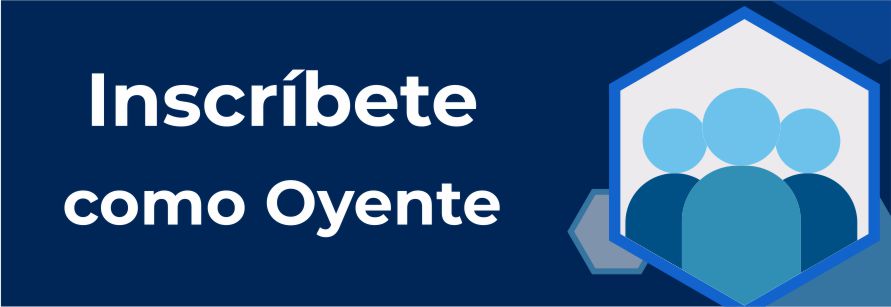El Rol de la Gamificación en ciencias naturales en la Mejora de la Motivación y el Rendimiento Académico en Estudiantes
Resumen
El estudio académico denominado "El Rol de la Gamificación en Ciencias Naturales en la Mejora de la Motivación y el Rendimiento Académico en Estudiantes" analiza el efecto de las estrategias de gamificación en el contexto de la pedagogía de las ciencias naturales, particularmente en lo que respecta a la motivación y el desempeño académico de los alumnos. Dentro del marco académico contemporáneo, la gamificación emerge como un instrumento innovador que integra componentes y mecanismos de los juegos en el proceso educativo, con el objetivo de incrementar el compromiso y optimizar los rendimientos académicos. Mediante una metodología mixta, se evaluaron tanto las respuestas cuantitativas como cualitativas de los estudiantes previo y posterior a la implementación de actividades gamificadas en el entorno académico. Los hallazgos cuantitativos se adquirieron mediante pruebas pre y post, mientras que los datos cualitativos se recolectaron a través de entre-vistas y grupos focales con estudiantes y educadores. Los descubrimientos revelaron que la imple-mentación de la gamificación incrementó notablemente la motivación de los alumnos, lo cual se evidenció en su mayor implicación en las actividades y en su predisposición para afrontar los retos académicos. Adicionalmente, se observaron avances en el desempeño académico de los estudian-tes, particularmente en áreas vinculadas con la asimilación de conceptos científicos y la resolución de problemas de alta complejidad. La presente investigación también destaca que la incorporación de la gamificación facilitó una interacción más activa entre los estudiantes y los contenidos de las ciencias naturales, promoviendo la comprensión de conceptos abstractos mediante simulaciones y juegos. La implementación de la gamificación, que ofrece retroalimentación inmediata y permite la personalización del proceso de aprendizaje, ha contribuido significativamente a la optimización de las competencias cognitivas y la retención de conocimientos. Para concluir, la implementación de la gamificación se revela como una estrategia pedagógica eficaz para potenciar la motivación y el desempeño académico en el campo de las ciencias naturales. No obstante, el estudio también detec-ta obstáculos en su puesta en marcha, tales como la exigencia de formación pedagógica y la adap-tación tecnológica, subrayando la relevancia de un enfoque holístico para su incorporación en el plan de estudios educativos.
Descargas
Citas
Aguirre, M., & Fernández, M. (2022). Motivation and learning in science: The role of gamification in high school education. Teaching and Teacher Education, 104, 32-42. https://doi.org/10.1016/j.tate.2021.103348
Alvarado, E., & Sánchez, A. (2023). Exploring the equity of technology access in gamified learning environments. Computers & Education, 184, 104-118. https://doi.org/10.1016/j.compedu.2023.104118
Alvarado, S. (2021). Gamification and student motivation: A comprehensive review in science ed-ucation. Science Education Review, 18(2), 35-47. https://doi.org/10.1177/00368504211056331
Bernal Parraga, A. P., et al. (2024). Innovation in early childhood: Integrating STEM from the area of mathematics for significant improvement. Ciencia Latina Revista Científica Multidisci-plinar, 8(4), 5675-5699. https://doi.org/10.37811/cl_rcm.v8i4.12779
Bernal Parraga, A. P., et al. (2024). The impact of gamification in science education on student en-gagement and learning. Ciencia Latina Revista Científica Multidisciplinar, 8(4), 5675-5699.
Bernal Parraga , A. P., Naguas Nagua, J. A., Villarreal Bonifaz , M. M., Santillán Sevillano , N. D. C., Reyes Ordoñez, J. P., Carrillo Baldeón, V. P., & Macas Pacheco, C. (2025). Gamifica-ción como estrategia innovadora para promover el aprendizaje significativo en Estudios So-ciales. Ciencia Latina Revista Científica Multidisciplinar, 9(1), 1044-1061.
https://doi.org/10.37811/cl_rcm.v9i1.15860
Deterding, S., Dixon, D., Khaled, R., & Nacke, L. (2011). From game design elements to gameful-ness: defining" gamification". In Proceedings of the 2011 Annual Conference on Human Factors in Computing Systems (pp. 1-4).
Deterding, S., Dixon, D., Khaled, R., & Nacke, L. (2011). From game design elements to gameful-ness: defining" gamification". In Proceedings of the 2011 annual conference on Human fac-tors in computing systems (pp. 2425-2428).
Fernández, J., et al. (2020). Barriers to implementing gamification in education: An analysis of challenges and solutions. Journal of Educational Technology Development and Exchange, 13(2), 45-58.
Fernández, M., López, J., & García, C. (2020). Barriers to the effective implementation of gamifi-cation in science education. International Journal of Educational Research, 101, 101512.
Freire, P. (2021). Pedagogy of the Oppressed. Bloomsbury Academic.
Gee, J. P. (2003). What video games have to teach us about learning and literacy. Computers in Entertainment (CIE), 1(1), 20-20. https://doi.org/10.1145/950566.950595
González, A., & Sánchez, M. (2021). Improving learning outcomes through gamification: An edu-cational study in science classrooms. International Journal of Science Education, 43(6), 1047-1064.
González, F., & Sánchez, R. (2021). The integration of gamification in science teaching: Impact on learning and engagement. Research in Science Education, 51(4), 915-933.
González, M., & Rodríguez, F. (2023). Gamification in higher education: How it enhances engage-ment and academic performance in the sciences. Innovative Education and Teaching Inter-national, 59(3), 233-246.
González, M., & Sánchez, J. (2021). The impact of gamification on student learning outcomes in science education: A review of literature. Journal of Educational Research, 44(2), 102-118.
González, M., & Sánchez, R. (2021). Gamification in natural science education: Boosting engage-ment and improving performance in high school students. Educational Technology Re-search and Development, 69(4), 1081-1099.
Hattie, J., & Timperley, H. (2007). The power of feedback. Review of Educational Research, 77(1), 81-112. https://doi.org/10.3102/003465430298487
Hernández, M., & García, L. (2022). Teacher training for gamification in science education: A re-view of needs and challenges. Journal of Teacher Education and Practice, 14(1), 99-113.
López, E., & González, A. (2022). The effectiveness of gamification in science education: A case study of high school students. Journal of Educational Psychology, 24(1), 75-87. https://doi.org/10.1037/edu0000456
López, F., & González, R. (2022). The impact of gamification on student motivation and engage-ment in natural science education. Journal of Educational Technology, 12(3), 45-56.
López, F., & Martínez, S. (2023). Gamification in natural sciences: Improving critical thinking and problem-solving skills. International Journal of Science Education, 45(5), 736-750.
López, M., & González, R. (2022). The impact of gamification in the teaching of science: An anal-ysis of motivation and academic performance. Educational Studies in Mathematics, 108(2), 213-229.
López, M., & Martínez, J. (2023). The role of gamification in the development of scientific reason-ing. Journal of Science Education, 14(1), 44-60.
López, V., & Martínez, P. (2023). Impact of gamification on student engagement in science educa-tion: A case study. European Journal of Education Studies, 9(2), 102-115.
Martínez, A., & Silva, R. (2022). The effectiveness of gamified learning environments in secondary education: A review. Educational Technology Research and Development, 70(5), 1247-1263.
Martínez, J., & Silva, G. (2021). The role of gamification in enhancing student engagement in natu-ral sciences. International Journal of STEM Education, 8(1), 45-55.
Martínez, J., et al. (2022). Game-based learning in science: Effects on cognitive skills and retention. Educational Technology & Society, 25(2), 56-68.
Martínez, M., & Silva, J. (2022). Educational gamification and its effect on student learning in natu-ral sciences. Journal of Educational Research and Practice, 12(1), 59-74.
Martínez, M., & Silva, J. (2022). The effects of gamification on science education: Enhancing stu-dent performance through interactive learning methods. Education and Information Tech-nologies, 27(3), 463-479.
Papastergiou, M. (2009). Digital game-based learning in high school computer science education: Impact on educational effectiveness and student motivation. Computers & Education, 52(1), 1-12. https://doi.org/10.1016/j.compedu.2008.06.004
Pérez, J., et al. (2022). The role of gamification in learning sciences: Enhancing student engagement and performance. Educational Technology & Society, 25(3), 100-115.
Pérez, M., García, M., & Martínez, L. (2022). Exploring the effectiveness of game-based learning in science education: A review of recent studies. Journal of Educational Research, 15(2), 120-130.
Pérez, S., & Gómez, J. (2021). Enhancing science learning through gamification: Evidence from a high school intervention. Journal of Educational Research and Practice, 11(4), 45-59.
Pérez, S., et al. (2022). An empirical study of the effectiveness of gamification in educational con-texts. International Journal of Educational Technology, 23(2), 105-118.
Rodríguez, A., & Pérez, J. (2023). Overcoming obstacles in the integration of gamification in class-rooms: Teacher training and resources. Educational Research and Reviews, 29(2), 120-132.
Rodríguez, J., & Pérez, D. (2023). Barriers in the implementation of gamification in the science classroom: A comparative study. Educational Research Review, 16, 2023-2036.
Rodríguez, M., & Pérez, J. (2023). Overcoming the challenges of implementing gamification in ed-ucation: Teacher preparation and technological access. Journal of Educational Innovation, 7(4), 55-67.
Ryan, R. M., & Deci, E. L. (2000). Self-determination theory and the facilitation of intrinsic moti-vation, social development, and well-being. American Psychologist, 55(1), 68-78. https://doi.org/10.1037/0003-066X.55.1.68
Ryan, R. M., & Deci, E. L. (2020). Self-determination theory: Basic psychological needs in motiva-tion, development, and wellness. Guilford Press.
Ryan, R. M., & Deci, E. L. (2020). The dark side of gamification: How too much reward can harm intrinsic motivation. Educational Psychologist, 55(4), 251-263.
Ryan, R., & Deci, E. (2021). Gamification and motivation in education: The impact of rewards and feedback. Educational Psychologist, 56(2), 134-147.
Schmidt, S., & Torres, A. (2021). Exploring the role of gamification in science teaching: A meta-analysis of current research. International Journal of STEM Education, 8(3), 41-56. https://doi.org/10.1186/s40594-021-00273-0
Serrano, D., & Pérez, S. (2022). Gamification as a strategy to improve the performance of students in the natural sciences: A study at the secondary school level. Science Education Review, 23(4), 205-213.
Serrano, J., & Pérez, A. (2022). Technological access and its impact on gamification in education. Journal of Digital Learning and Teaching, 10(3), 147-160.
Serrano, M., & Pérez, J. (2022). Gamified experiences in science classrooms: Analyzing motivation and learning outcomes. Journal of Educational Psychology, 22(1), 44-58. https://doi.org/10.1037/edu0000274
Serrano, P., & Pérez, J. (2022). Analyzing the impact of gamification in science education: A longi-tudinal study. Journal of Science Education and Technology, 31(1), 75-88.
Sweller, J. (2021). Cognitive load theory and educational practice. Educational Psychology Review, 33(4), 1-13.
Sweller, J. (2021). Cognitive load theory: Implications for learning and instruction. Learning and Instruction, 25, 79-85.
Sweller, J. (2021). Cognitive load theory: Implications for learning and teaching. Learning and In-struction, 74, 101-110.
Talan, M., & Işık, E. (2021). Gamification in science education: The effects on motivation and learning outcomes. Journal of Educational Technology & Society, 25(4), 14-23.
Talan, O., & Işık, Z. (2021). Gamification as an educational tool: Enhancing collaborative learning and problem-solving in science classes. Educational Technology Research and Develop-ment, 69(4), 773-791.
Talan, T., & Işık, B. (2021). Educational gamification: Understanding the effects on student learn-ing. Educational Technology Research and Development, 69(2), 467-480.
Talan, T., & Işık, B. (2021). Gamification in education: The effects on student engagement and learning outcomes. Educational Technology Research and Development, 69(3), 405-425.
Vygotsky, L. S. (2022). Interaction between learning and development. Educational Psychology, 55(6), 411-424. https://doi.org/10.1037/edu0000458 Harvard University Press
Zhao, Y., & Liu, J. (2020). The impact of gamification on student learning outcomes in science classrooms: A meta-analysis. Educational Technology Research and Development, 68(1), 205-219. https://doi.org/10.1007/s11423-019-09714-4
Zichermann, G., & Cunningham, C. (2011). Gamification by design: Implementing game mechan-ics in web and mobile apps. O'Reilly Media, Inc
Derechos de autor 2025 Virginia Germania Bajaña Gurumendy, Selena Mayumi Barreiro Meza, Elena María Cepeda Lascano, Cristina Verónica Riquero Arias, Marlon Mauricio Mayea Macias, Ivonne Narcisa Morales Coello, Araseli Alba Troya Ramos

Esta obra está bajo licencia internacional Creative Commons Reconocimiento 4.0.













.png)




















.png)
1.png)


